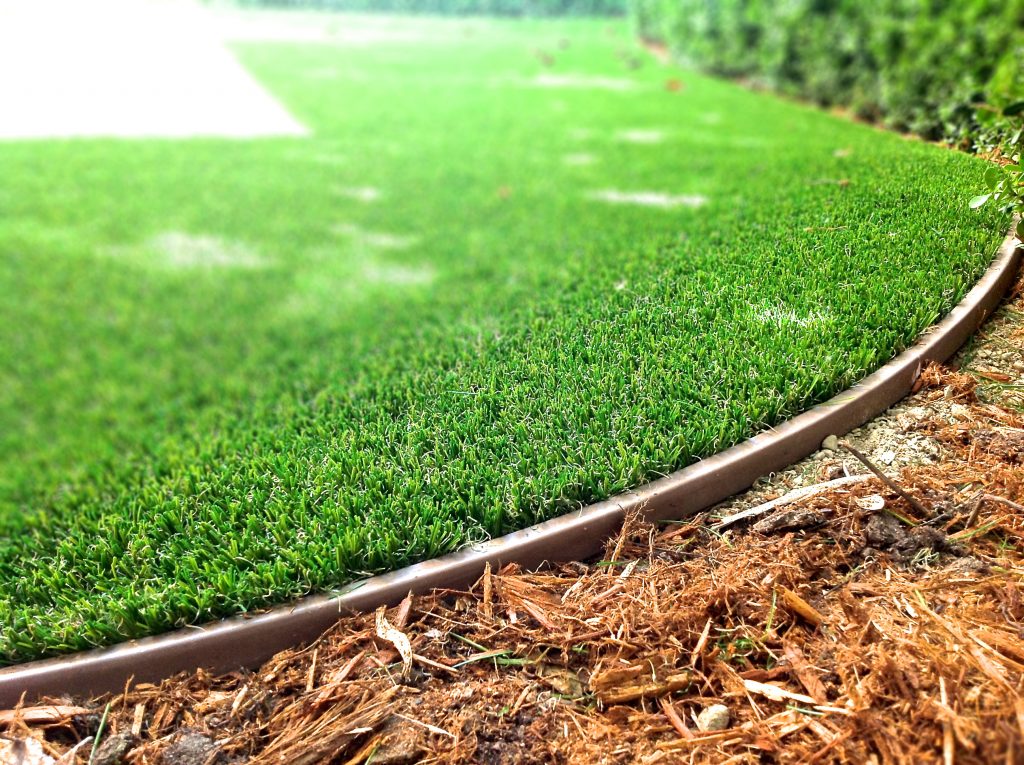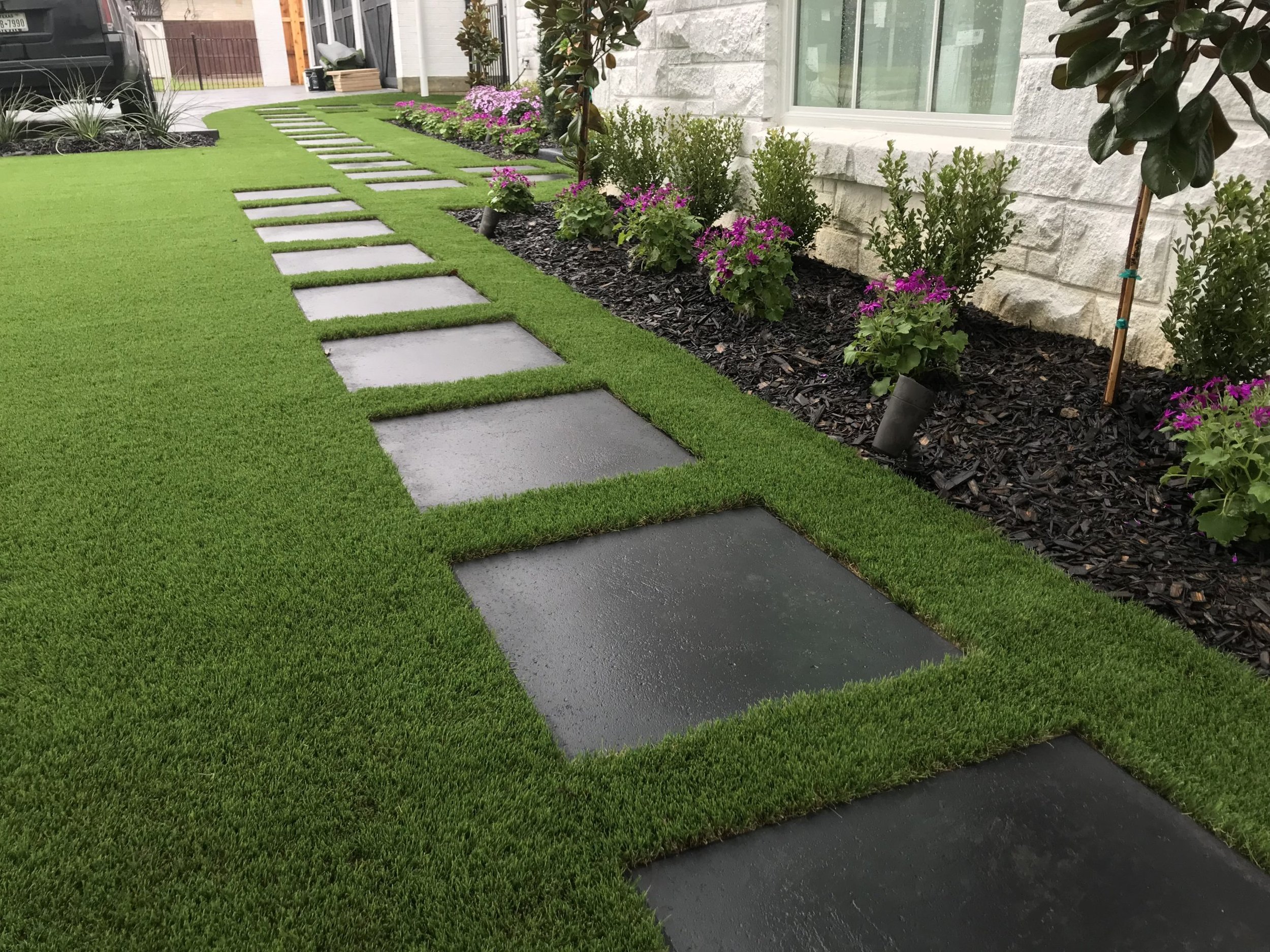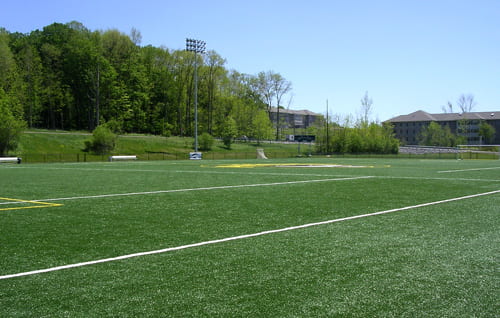Find Reliable Artificial Turf Companies Phoenix for Durable and Natural-Looking Grass
Find Reliable Artificial Turf Companies Phoenix for Durable and Natural-Looking Grass
Blog Article
Explore the Environmental Benefits of Opting for Artificial Lawn Solutions
The fostering of artificial grass services provides an engaging chance to address pressing environmental obstacles. By substantially minimizing water use and lessening the application of unsafe chemicals, these choices not only advertise sustainable landscaping however likewise shield regional communities.
Water Preservation Conveniences
One of the most significant advantages of artificial grass is its ability to preserve water. In contrast, synthetic turf does not require watering, significantly minimizing the overall need for water sources.
By eliminating the need for regular watering, man-made turf contributes to lasting landscape techniques and assists reduce the ecological influence of too much water intake. Moreover, the preservation of water expands to the decrease of overflow, which can cause soil disintegration and waterway contamination.
Additionally, the installation of synthetic grass permits communities and home owners to allot water resources much more efficiently, concentrating on necessary usages such as alcohol consumption water and agriculture. The shift in the direction of synthetic grass not just advertises accountable water use yet additionally lines up with more comprehensive ecological objectives focused on protecting natural deposits.
As communities increasingly prioritize sustainability, the water preservation advantages of synthetic grass provide an engaging case for its adoption in industrial and household landscaping tasks.
Decreased Chemical Usage
The change to artificial lawn dramatically reduces the dependence on chemical therapies frequently made use of in all-natural turf maintenance. Typical grass monitoring typically involves the application of chemicals, herbicides, and fertilizers to advertise growth and control bugs. These chemicals can posture risks to human health and wellness, neighborhood wild animals, and the atmosphere, adding to soil and water contamination.
In contrast, synthetic turf removes the requirement for these dangerous substances. By minimizing the release of artificial compounds right into the environment, fabricated lawn advertises healthier dirt and water systems.
Moreover, the lack of chemical runoff connected with synthetic grass setups helps safeguard regional rivers from pollution, sustaining aquatic life and keeping biodiversity. Phoenix turf companies. As neighborhoods progressively prioritize lasting practices, choosing synthetic lawn provides a viable service that aligns with environmental conservation objectives. Via this change, homeowner can take pleasure in lavish eco-friendly areas without jeopardizing eco-friendly health and wellness, paving the means for a much more lasting future
Reduced Carbon Footprint

Furthermore, the installation of synthetic grass can result in substantial water conservation. Natural lawns require substantial quantities of water for watering, which not only contributes to the carbon impact connected with water removal and treatment but likewise pressures local water resources. In comparison, synthetic grass needs marginal upkeep, requiring no watering, thereby considerably decreasing water usage and its connected energy expenses.
In addition, the durability of man-made grass adds to its reduced carbon impact. With a life-span of approximately 15 years or even more, the need for frequent replacements is reduced, causing much less waste and lower energy consumption in production and taking care of traditional yard alternatives. Generally, synthetic turf offers a lasting alternative for environmentally aware landscaping.
Habitat Preservation
Habitat preservation is a vital consideration in the dispute over landscape design selections, particularly when comparing synthetic grass to natural turf. Natural lawn lawns commonly need extensive upkeep, including the usage of chemicals, plant foods, and herbicides, which can negatively affect regional ecosystems. These chemicals can leach into the soil and rivers, harming native plants and fauna and interrupting neighborhood environments.
On the other hand, synthetic grass provides an opportunity to lower the ecological impact of landscaping. By going with artificial yard, property owners can lessen the interruption of all-natural environments linked with traditional yard treatment techniques. Synthetic turf eliminates the demand for hazardous chemicals, thus safeguarding close-by wild animals and keeping the integrity of surrounding communities. The installment of artificial grass can lead to the conversion of former lawn areas visit site into even more biodiverse landscapes, such as pollinator yards or indigenous plant areas, which can sustain regional wildlife.
Eventually, the transition to artificial lawn not only saves water and minimizes upkeep initiatives however additionally fosters an extra harmonious partnership between human activities and the natural environment, advertising environment preservation while doing so.
Long-Term Sustainability
Long-lasting sustainability is an important variable in evaluating the advantages of synthetic grass over typical lawn yards. One of the most considerable benefits of synthetic grass is its durability; it can last as much as 15-20 years with very little upkeep, whereas all-natural yard calls for constant reseeding and replacement. This longevity minimizes the need for consistent resources, such as water, plant foods, and chemicals, which are crucial for maintaining a healthy and balanced yard lawn.
Additionally, fabricated lawn adds to a reduction in carbon emissions linked with yard treatment equipment. Typical yards often require gas-powered mowers, leaners, and blowers, all of which add to air pollution. Artificial turf companies phoenix. In comparison, synthetic grass removes the requirement for such devices, advertising a cleaner setting
Moreover, the production of man-made turf progressively makes use of recycled products, improving its sustainability profile. As manufacturers embrace environment-friendly practices, the ecological impact of synthetic grass proceeds to reduce.

Verdict
The fostering of synthetic grass remedies presents significant environmental advantages, including significant water look at here now preservation, decreased reliance on hazardous chemicals, and a lower carbon footprint. Synthetic lawn help in preserving all-natural habitats by minimizing land disruption and promoting long-term sustainability with the use of sturdy products. Collectively, these variables highlight the potential of artificial grass to add favorably to ecological wellness and use a practical option to conventional landscaping techniques in an increasingly resource-conscious globe.
In comparison, artificial grass does not need watering, dramatically lowering the general need for water sources. By minimizing the release of artificial compounds into the environment, fabricated turf advertises much healthier soil and visite site water systems.
Additionally, the setup of synthetic grass can result in substantial water preservation. In comparison, synthetic lawn requires minimal maintenance, calling for no watering, thereby substantially minimizing water usage and its associated power costs.

Report this page